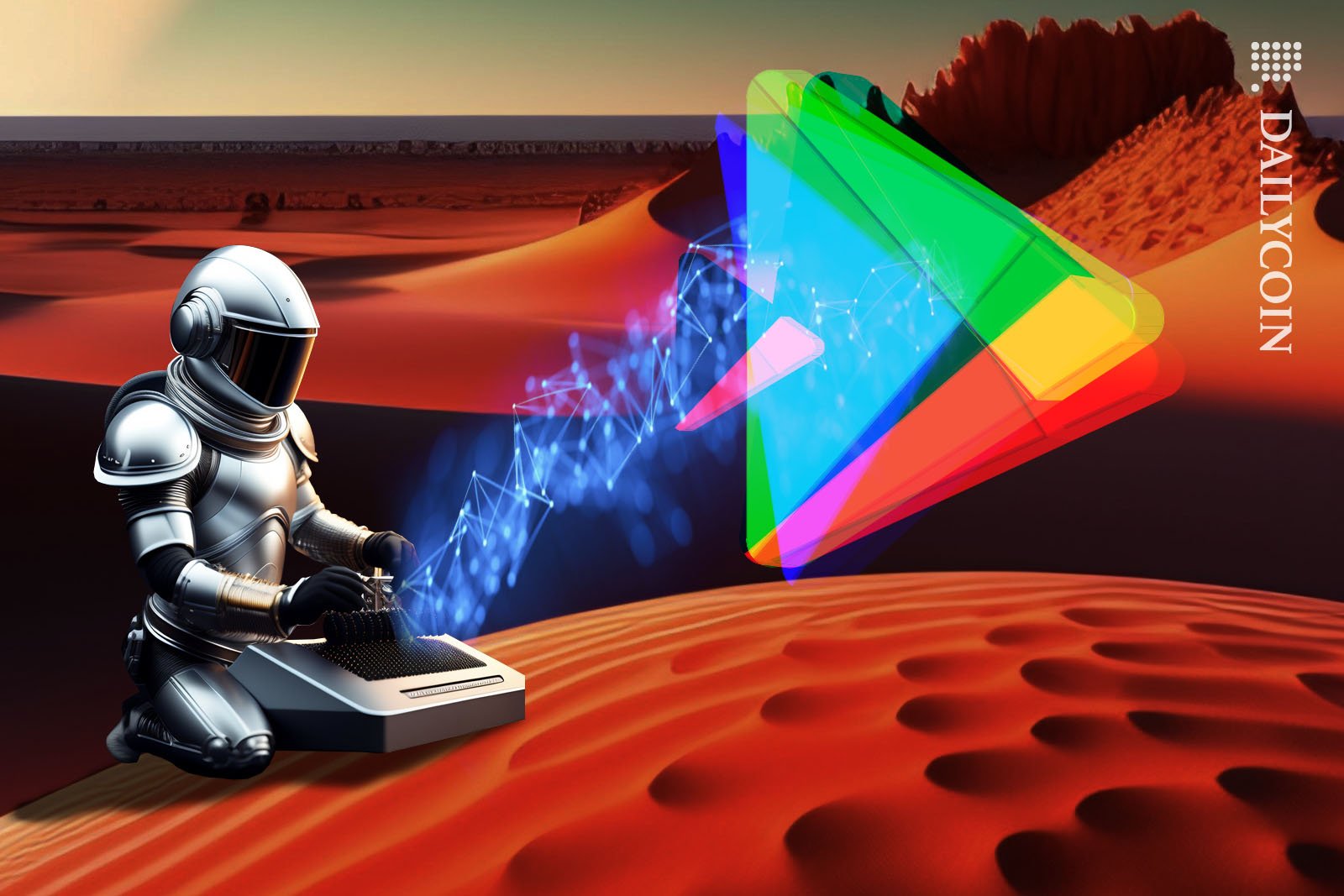
- Google Play is embracing blockchain technology.
- The updated policy requires developers to be transparent with tokenized assets.
- Google Play’s approach is diametrically opposed to that of Apple’s App Store.
Despite ongoing regulatory issues, blockchain adoption is accelerating. Most recently, Google Play has announced its support for blockchain-based apps. This has prompted crypto enthusiasts to question whether Apple will try and catch up.
Google Play Dives into Blockchain
On Wednesday, July 12, Google Play revealed its plans to enable new blockchain-based experiences. According to Joseph Mills, Group Product Manager at Google Play, the platform updates its policy to integrate tokenized assets, including NFTs.
“We’re excited to see creative in-app experiences flourish and help developers expand their businesses,” Mills exclaimed. This move will allow developers to reimagine traditional games with user-owned content. Moreover, it will enable them to monetize by selling these assets.
The policy update also emphasizes user protection, requiring apps to be transparent about tokenized digital assets. For instance, if an app sells or enables users to earn tokenized digital assets, developers must declare this.
Sponsored
Still, Google maintains a strict stance on gambling on assets with monetary value. The new guidelines state that apps that have not met gambling eligibility requirements can’t accept money for a chance to win a prize, including NFTs. This also includes offering blockchain-based loot boxes.
Google Embraces Blockchain While Apple Draws Criticism
Unlike Google, Apple did not go out of its way to accommodate blockchain developers. Some critics say the opposite is true and that Apple is stifling blockchain innovation.
Sponsored
In October 2022, Apple updated its App Store Review Guidelines, guiding apps offering cryptocurrency and non-fungible tokens (NFTs). The rules clarified that cryptocurrencies cannot be used as an alternative payment option within apps.
Apps could use in-app purchases to sell services related to NFTs, such as minting, listing, and transferring. However, NFT ownership could not unlock features or functionality within the app. Moreover, apps could not include buttons or links that direct customers to purchase mechanisms other than in-app purchases. This rule has effectively barred NFT platforms from appearing on the App Store.
Apple’s approach has drawn criticism from some quarters of the blockchain community. The company faced backlash for blocking several blockchain-based apps and over its high fees. However, Apple maintains that its policies protect users and that its costs align with industry standards.
On the Flipside
- Google Play Store has a lot more users than Apple’s App Store. Despite that, users spend roughly twice as much on the App Store.
- Earlier this year, Apple announced its entry into virtual reality worlds with its VR headset. However, the company made no references to decentralization or the metaverse.
Why This Matters
For crypto traders, Google Play’s move into blockchain is a significant development. It signals a growing acceptance of blockchain technology in mainstream tech. In turn, this could drive increased adoption of digital assets and NFTs.
Read more about Apple’s impact on decentralized technology:
Opinion: Apple’s Vision Pro AR Headset Highlights the Need for Decentralized Tech
Read more about the NFT music platform that wants to challenge Spotify:
What Is Sound.xyz, the NFT Music Site Backed by a16z and Snoop Dogg?
